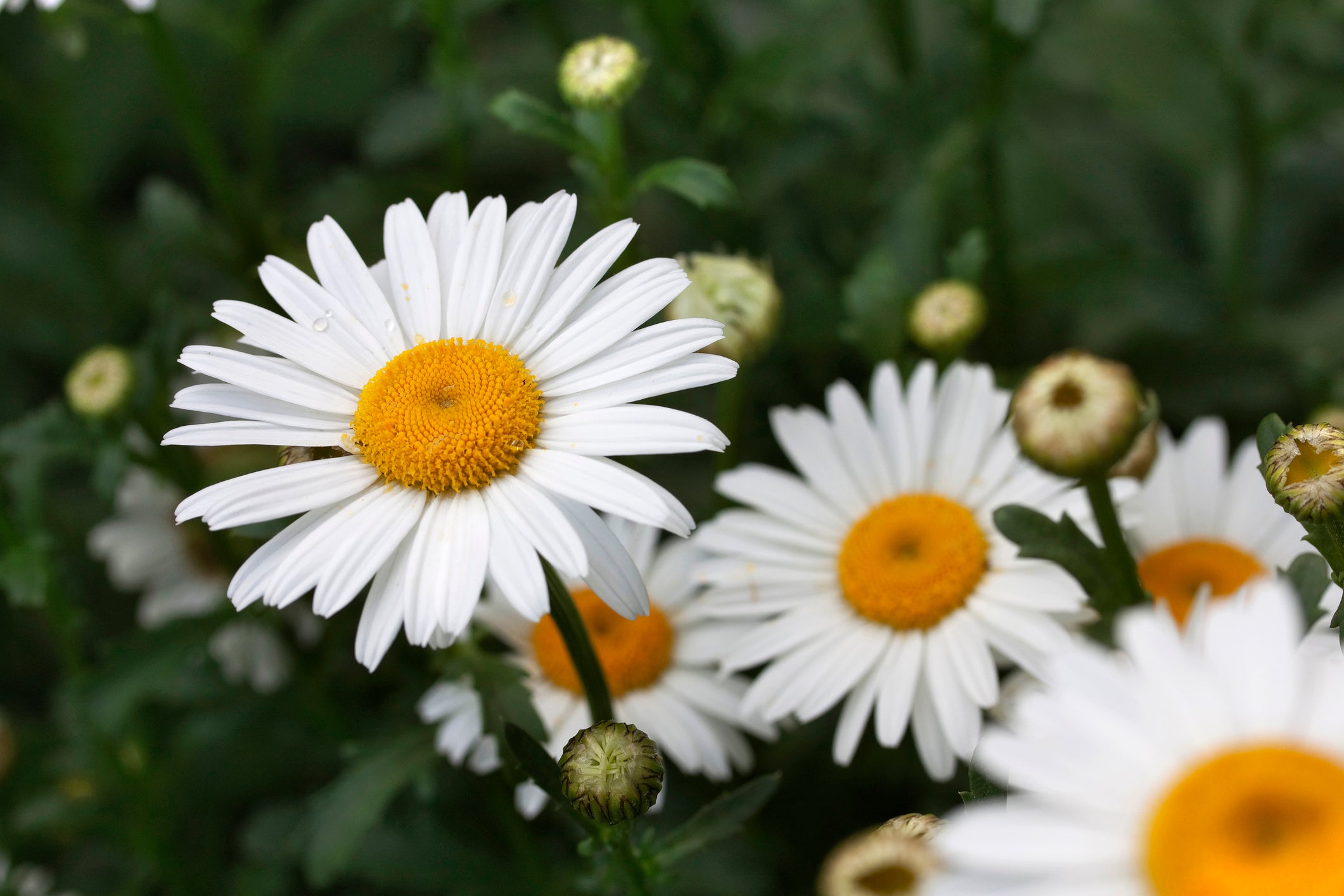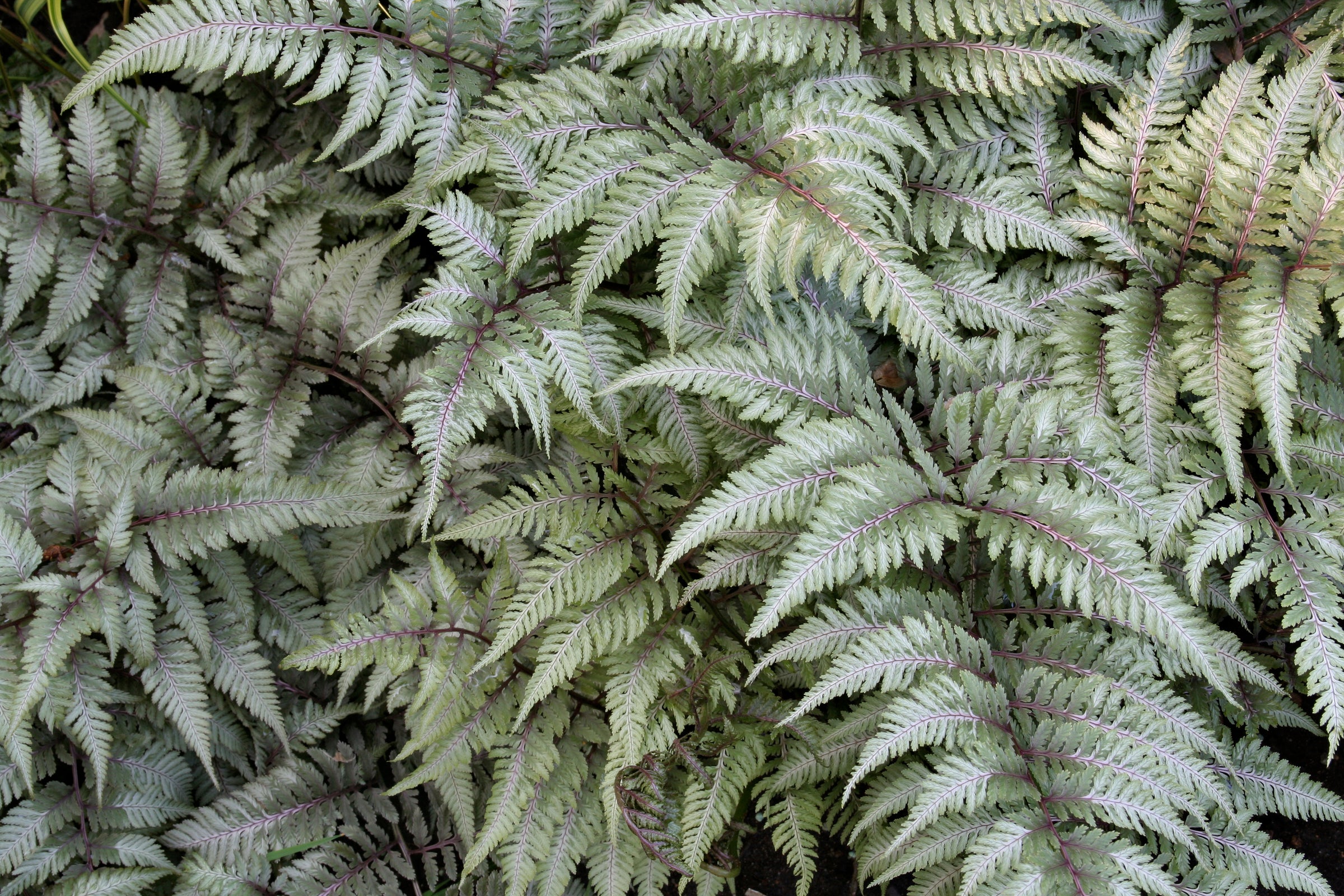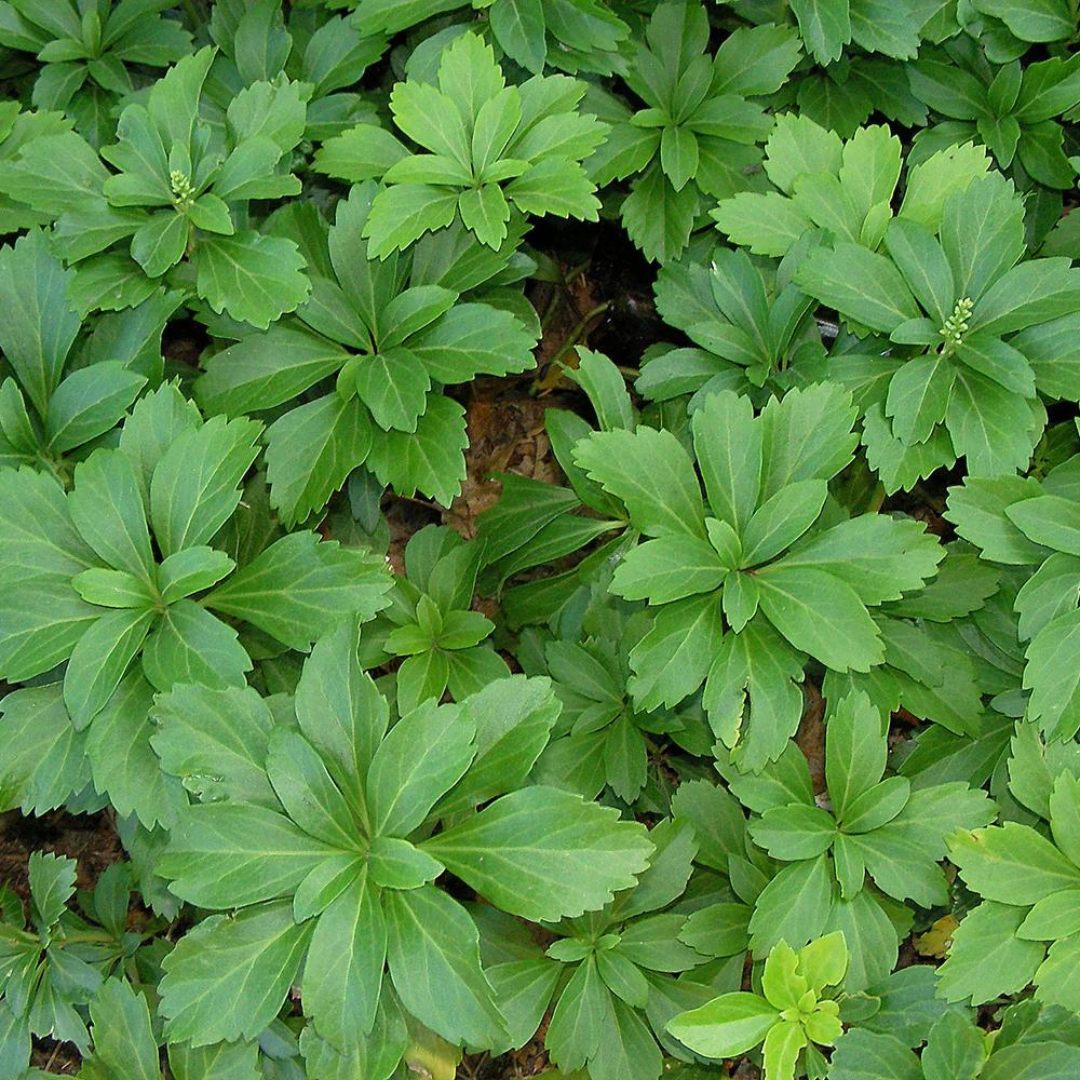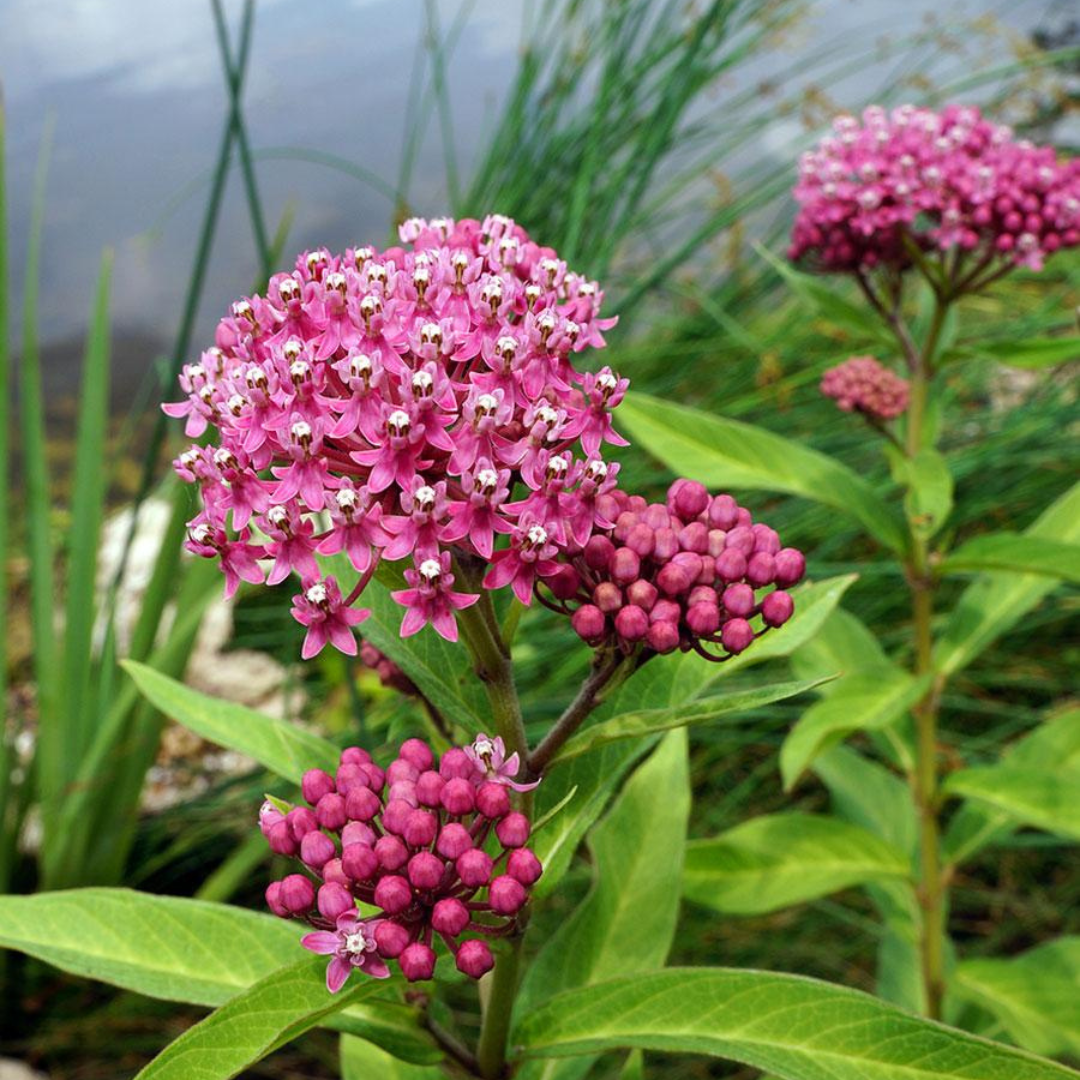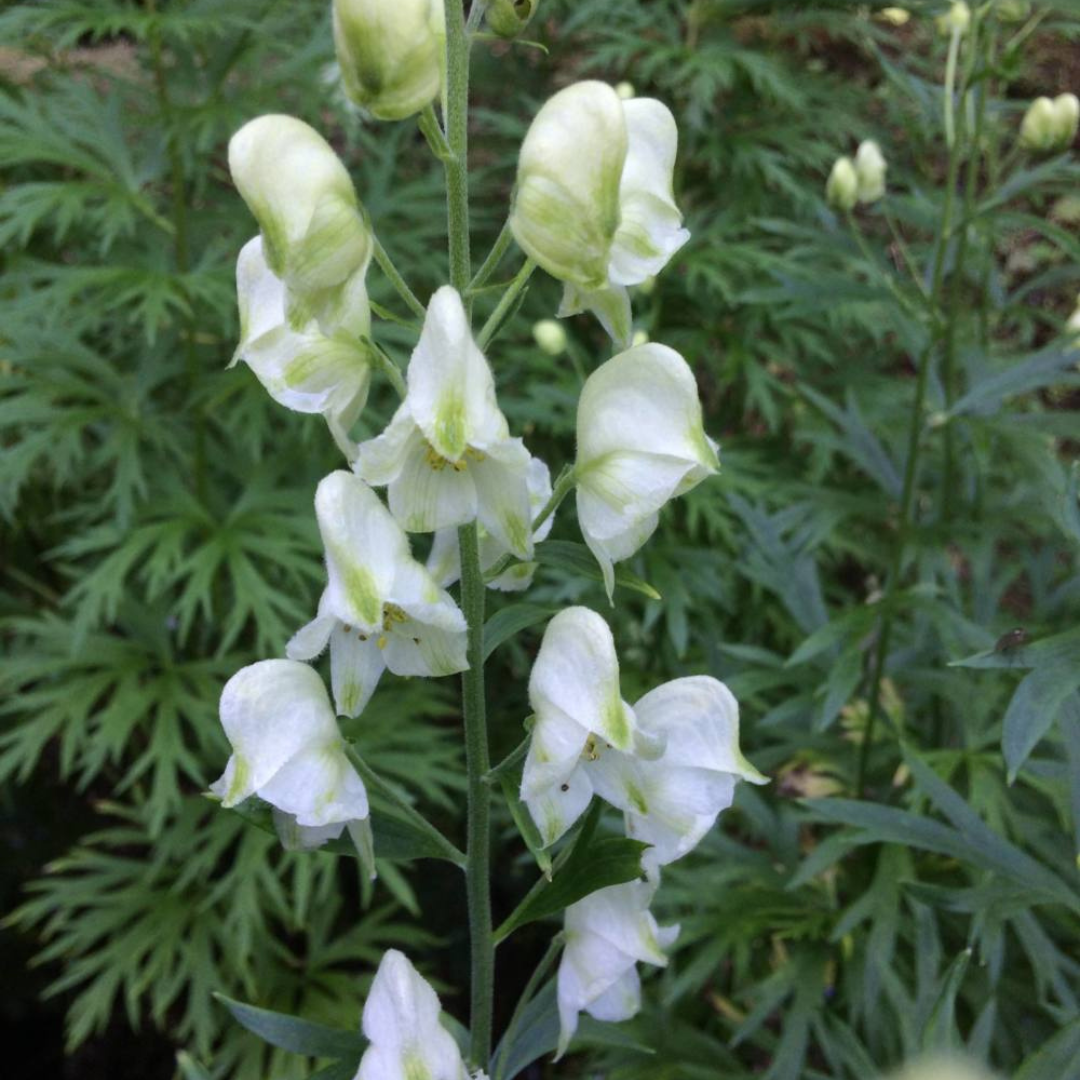
Aconitum 'Album'
Add to Wishlist Full Sun
Full Sun
 Partial Sun
Partial Sun
 Deer Resistant
Deer Resistant
 Low Maintenance
Low Maintenance
- In stock, ready to ship
- Backordered, shipping soon
Aconitum 'Album': Pure Elegance in Spire Form
Aconitum 'Album' is a luminous presence in the late-summer garden, with tall spires of pure white, helmet-shaped blooms rising above rich green foliage. This refined monkshood variety offers a cool, architectural contrast just as the garden begins to mellow into autumn. Its upright habit and crisp colour make it a stunning vertical accent in borders, cottage plantings, and woodland edges. Naturally resistant to deer and rabbits, and thriving in full sun to part shade with moist, fertile soil, 'Album' is a stately and reliable perennial that carries the garden gracefully into fall.
Plant Characteristics:
- Height: 90–120 cm
- Spread: 45–60 cm, forming a dense, upright clump
- Flower Colour: Clean, pure white hooded blooms
- Flowering Period: Late summer to early fall
- Foliage: Glossy, dark green, deeply lobed leaves
- Sunlight Requirements: Full sun to part shade (prefers part shade in hotter regions)
- Soil Requirements: Moist, well-drained, organically rich soil; avoid hot, dry conditions
Uses and Benefits: 'Album' is ideal for adding vertical structure, cool contrast, and late-season bloom to sun or shade borders. Its spires of white stand out against deeper tones, brightening mixed plantings and attracting late-flying pollinators. With deer and rabbit resistance, it’s a smart choice for wildlife-prone areas, and its handsome foliage keeps the plant attractive even before blooming. Perfect for cottage gardens, naturalistic schemes, or shaded edges needing a burst of architectural clarity.
⚠ Caution: All parts of Aconitum are toxic if ingested and may cause skin irritation. Always wear gloves when handling and avoid planting where pets or children frequent.
Companion Plants: Pair 'Album' with Echinacea 'PowWow White' to echo the cool, clean palette while extending pollinator support into early fall. Add Achillea 'Moonshine' for soft lemon-yellow contrast and finely cut foliage. Round out the composition with Pennisetum alopecuroides 'Hameln', whose flowing grasses and tawny plumes soften the strong vertical lines of 'Album' and add late-season movement.
Care Instructions: Maintain consistent soil moisture, especially during dry spells. Mulch to protect roots and conserve moisture. Stake in windy areas to support tall stems. Cut back after flowering to tidy the plant. Wear gloves when handling and wash hands thoroughly afterward.
History: Aconitum 'Album' is a white-flowered selection of Aconitum napellus, native to mountainous regions of Europe. Historically used in herbalism and mythology, this species is now valued for its ornamental qualities and late-season bloom. The cultivar 'Album' offers a refined twist with its pure white flowers, making it a standout for sophisticated garden compositions.
Final Thoughts: With its sculptural form, pristine blooms, and graceful late-season presence, Aconitum 'Album' adds classic beauty and resilient structure to sun or part-shade plantings. It's a glowing highlight in autumn borders, providing contrast, elegance, and a cool breath of refinement when many other perennials begin to fade.


